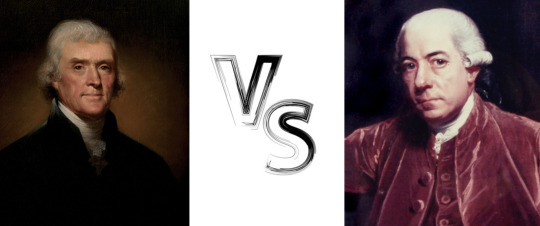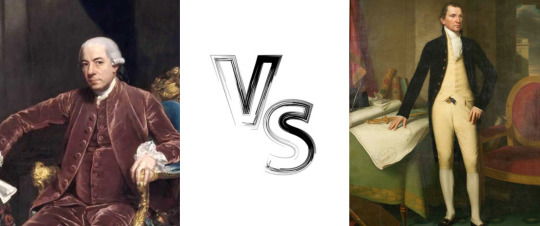#Austin American statesman
Text
June 28, 2022 - Record # of 100 Degree Days in June. Then it Rained....
This evening ( Monday, June 27, 2022 ) here in Austin, we broke the all-time record for number of days 100 degrees or more - and - the clouds and rain and cooler air swept through and we dared open the blinds and step outside before 10 pm, lol!
Sheila breathing in non-100 degree air June 27, 2022 7pm Austin, Texas ©Felipe Adan Lerma
This evening ( Monday, June 27, 2022 ) here in Austin, we broke the all-time record for number of days 100 degrees or more – and – the clouds and rain and cooler air swept through and we dared open the blinds and step outside before 10 pm, lol!I’ve got a couple of windows cracked open, Sheila’s sitting on…

View On WordPress
0 notes
Text


Paramore at Austin City Limits by Mikala Compton for American-Statesman (2022)
#austin city limits#paramore#acl#hayley williams#acl fest#acl festival#mikala compton#american statesman#tour 2022
290 notes
·
View notes
Text
Texas Governor Greg Abbott said on Saturday he is seeking the pardon of an Uber driver convicted of murder a day earlier in the July 2020 shooting death of a man at a Black Lives Matter protest in downtown Austin, the state capital.
Abbott, in a post on Twitter, said he will pardon Daniel Perry, 37, a U.S. Army sergeant, as soon as a request from the parole board "hits my desk."
The Republican Governor noted that he can grant pardons only on the recommendation of the state's Board of Pardons and Paroles, but that he is allowed to request pardons.
The case hinged on whether the shooting was in self-defense. A jury found on Friday that Perry, who is white, shot and killed Garrett Foster, a 28-year-old white man, who was carrying an AK-47, according to the Austin American-Statesman newspaper.
Perry was driving in the city the night of the shooting and turned his Uber vehicle onto a street where a Black Lives Matter crowd was marching, according to media. Perry stopped, and several protesters including Foster approached his vehicle. Protesters told police that they feared they were being assaulted with the vehicle, according to media accounts.
Perry's defense team claimed the weapon was leveled at him and he had no choice but to fire his pistol in self-defense, the newspaper reported. Neither of Perry's attorneys was immediately available for comment by phone or email.
Perry was convicted of murder after the jury deliberated for 17 hours in the eight-day trial, according to media accounts.
“I will work as swiftly as Texas law allows regarding the pardon of Sgt. Perry,” Abbott wrote on Twitter.
“Texas has one of the strongest ‘Stand your ground’ laws of self-defense that cannot be nullified by a jury or progressive district attorney," he said. "Additionally, I have already prioritized reining in rogue District Attorneys, and the Texas Legislature is working on laws to achieve that goal."
Jose Garza, the district attorney for Travis County, where the case was tried and where Austin is located, is a Democrat, and has been in office since Jan. 1, 2021.
When the verdict was read, Perry buried his head into the chest of one of his lawyers and sobbed, the Austin-American Statesman reported.
“We’re happy with the verdict. We’re very sorry for his family as well. There’s no winners in this,” said Stephen Foster, the victim’s father, according to the newspaper.
Perry faces life in prison and is due to be sentenced by State District Court Judge Clifford Brown on Tuesday, according to online court records for the 147th District Court in Travis County, Texas.
#us politics#news#reuters#republicans#conservatives#gop#gop policy#gop platform#texas#gov. greg abbott#Black Lives Matter#2020 protests#Daniel Perry#Texas Board of Pardons and Paroles#Garrett Foster#Austin American-Statesman#2023#Jose Garza#Travis County district attorney#Judge Clifford Brown#147th District Court#pardons
54 notes
·
View notes
Text


keyereporter: Sam Winchester… oops Jared Padalecki helped celebrate the grand opening of The Statesman this week in Downtown Austin. The Austinite and star of the TV series The Supernatural & Gilmore Girls joined Chuck Liddell and other celebrities in welcoming @statesmanatx to West Sixth.
🍴The Statesman is a new American Supper Club & Cocktail Lounge that opens January 19th at 710 West 6th Street.
🥂Check out the Press for Champagne button!
43 notes
·
View notes
Text
THE GRAND FINALE
WHO IS THE TRULY THE WORST FOUNDING FATHER?
THOMAS JEFFERSON VS HENRY LAURENS

Thomas Jefferson (April 13, 1743 – July 4, 1826) was an American statesman, diplomat, lawyer, architect, and philosopher who served as the third president of the United States from 1801 to 1809. Following the American Revolutionary War and prior to becoming the nation’s third president in 1801, Jefferson was the first United States secretary of state under George Washington and the nation’s second vice president under John Adams.
Starting in 1803, he promoted a western expansionist policy with the Louisiana Purchase and began the process of Indian tribal removal from the newly acquired territory.
Jefferson lived in a planter economy largely dependent upon slavery, and used slave labor for his household, plantation, and workshops. Over his lifetime he owned about 600 slaves.
During his presidency, Jefferson allowed the diffusion of slavery into the Louisiana Territory hoping to prevent slave uprisings in Virginia and to prevent South Carolina secession. In 1804, in a compromise on the slavery issue, Jefferson and Congress banned domestic slave trafficking for one year into the Louisiana Territory.
In 1819, Jefferson strongly opposed a Missouri statehood application amendment that banned domestic slave importation and freed slaves at the age of 25 on grounds it would destroy the union.
Jefferson never freed most of his slaves, and he remained silent on the issue while he was president.
Since the 1790s, Jefferson was rumored to have had children by his sister-in-law and slave Sally Hemings, known as the Jefferson-Hemings controversy. According to scholarly consensus…as well as oral history, Jefferson probably fathered at least six children with Hemings.
---
Henry Laurens (March 6, 1724 [O.S. February 24, 1723] – December 8, 1792) was an American Founding Father, merchant, slave trader, and rice planter from South Carolina who became a political leader during the Revolutionary War. A delegate to the Second Continental Congress, Laurens succeeded John Hancock as its president. He was a signatory to the Articles of Confederation and, as president, presided over its passage.
Laurens had earned great wealth as a partner in the largest slave-trading house in North America, Austin and Laurens. In the 1750s alone, this Charleston firm oversaw the sale of more than 8,000 enslaved Africans.
Laurens’ oldest son, Colonel John Laurens, was killed in 1782 in the Battle of the Combahee River, as one of the last casualties of the Revolutionary War. He had supported enlisting and freeing slaves for the war effort and suggested to his father that he begin with the 40 he stood to inherit. He had urged his father to free the family’s slaves, but although conflicted, Henry Laurens never manumitted his 260 slaves.
---
By popular vote, this final round will run for one full week
Please reblog so we can get the biggest sample size possible and figure who is TRULY the worst
#founding father bracket#worst founding father#founding fathers#amrev#brackets#polls#thomas jefferson#henry laurens#FINAL ROUND#the fact that i have books about both of these men on my bookshelves 💀
137 notes
·
View notes
Text
youtube

Instagram: Austin-American Statesman
It’s all in the eyebrows 🦎👀
30 notes
·
View notes
Text
Work in Progress Wednesday
(Twork in Trogress Thursday)
I've come to this so late, I'm sorry! Thank you for the tag @heartstringsduet @reyesstrand @cold-blooded-jelly-doughnut @mikibwrites @theghostofashton @lemonlyman-dotcom 🥰
Please have some Flashback Fic! I'm not tagging anyone due to my lateness - but if you want to share a Twork in Trogress Thursday please take this as an open tag and tag me back!
Thursday November 24, 2011
Carlos wakes at 8:46 a.m. on Thanksgiving morning – late by his standards, but he’d struggled to fall asleep until the early hours because of a nervous stomach and chest-crushing dread and a headache behind the eyes. The feeling he wakes with isn’t too dissimilar to the early days of flu, and for a moment he wonders if that’s what it is, coincidentally, and his proposing to Iris over milkshakes and Coke floats at the diner yesterday evening isn’t actually the source of feeling like he’s been hit by a truck.
He lumbers into the kitchen, legs like lead, still in his pajamas and dressing gown. Only his parents are around; sisters arriving later. He’ll tell them separately anyway – separately from each other. He thinks they’ll freak. They’ll have strong and probably opposite opinions and argue with each other about what Carlos should do. He doesn’t want to hear it.
Andrea is at the sink, poised to soak a pan she’s used for oatmeal. Gabriel sits on a stool at the island, reading the Austin American-Statesman and drinking black coffee. He sees Carlos first.
“Son,” he says with a wince, “You look terrible.”
“Thanks, Dad.”
“Carlitos, you’re not feeling so good?” Andrea asks, putting the words into his mouth.
“I think I’m coming down with something.”
“Ah, on Thanksgiving – you poor thing. Why is that always the way?” Andrea tuts with sympathy. Last Thanksgiving, she had a nasty bout of tonsillitis and could only tolerate chicken soup while on the couch with a lap tray; the rest of the family feasted at Tía Elena’s. “You better stay in bed today.”
“I don’t think I need to do that. I want to help you.” Carlos looks around the kitchen. They’re hosting this year and relatives will be descending upon the house in just a few hours.
“Maybe you just need a big cup of coffee,” Gabriel says, and gets up to fetch him one.
"No thanks, Dad.” The idea of coffee, which he’d ordinarily love first thing, makes him queasy. “Actually, I've got some news.” His voice wobbles through the words so harshly that Andrea drops the oatmeal pan into the sink from a height, spraying her sweater with suds.
"Carlitos." She puts her hand on her heart. "What is it?"
"No, Mamá. It's good news." Carlos contorts a smile. "Yesterday, I asked Iris to marry me."
Gabriel doesn't drop the large red coffee mug he’s picked from the cupboard, but rather sets it down onto the counter so slowly that the motion seems to warp time, and father and son stare at each other for an eternity that is also five seconds. "Carlos–"
"Really?" Andrea interjects, in the same tone she uses for when he’s left a wet towel on the bathroom floor.
"But you're-" Gabriel steps towards him. "You're–"
Carlos stares at him and backs away. He can't believe it. His father is about to say the word. Gay.
"You're only just eighteen, son."
"Oh." Carlos lets out a deep breath. He isn't sure if what he feels is relief, or the opposite. "You were nineteen when you got engaged," he answers.
Gabriel walks a few paces to Andrea and puts his arm around her. They stare at him like he's a weird painting that they don’t get.
#Work in progress Wednesday#Flashback Fic#My fic#I am late for *reasons* but really wanted to share as I've been working a lot on this
35 notes
·
View notes
Text
Shipping tycoon Angela Chao was drunk when she inadvertently reversed her Tesla into a pond and drowned last month at a Texas ranch, police say.
Blanco County Sheriff's Office found her blood alcohol level was nearly three times the state's legal limit.
The 50-year-old died after dinner on 10 February with a group of friends at the estate near Johnson City.
Her brother-in-law, Senate Republican leader Mitch McConnell, cited the tragedy in his resignation speech.
On Wednesday, Blanco County Sheriff's Office released the findings of its investigation concluding Ms Chao's death was an "unfortunate accident".
She had invited seven girlfriends from her days at Harvard Business School to spend the weekend at the 900-acre ranch.
They had attended a concert by rapper Pitbull in Austin the night beforehand, according to the police report.
After dinner at the guest lodge on the night of her death she headed back to the main house.
But during a three-point turn she accidentally reversed the Model X SUV into a pond.
A friend, Amber Keinan, told detectives Ms Chao had called her at 23:42 and said the car was in the water and she was trapped inside.
"Chao told Keinan the water was rising and she was going to die and said 'I love you,'" the report says. "Chao then said her good byes to Keinan."
The conversation lasted eight minutes.
The police report describes how friends and police tried to save her. Some of the friends were "screaming frantically" at the deputies from the pondside.
Officers eventually smashed the driver's side window of the submerged car, pulling Ms Chao from the vehicle.
She was pronounced dead at 01:40 on 11 February.
A toxicology test found she had a blood alcohol concentration level of 0.233g per 100ml. The legal limit in Texas is 0.08g per 100ml.
Ms Chao was chairwoman and chief executive of her family's shipping business, the Foremost Group, which operates a global fleet of bulk carrier ships. The Chaos have a net worth of $14.2bn (£11bn), according to Forbes.
She was married to Jim Breyer, a billionaire venture capitalist.
Her older sister, Elaine Chao, is married to Mr McConnell and was transportation secretary under President Donald Trump and labour secretary under President George W Bush.
When he announced last month that he was stepping down as Senate minority leader, Mr McConnell suggested the tragedy's impact on his family was a factor in his decision.
"When you lose a loved one, particularly at a young age, there's a certain introspection that accompanies the grieving process," the Kentucky senator said on the floor of the chamber.
Ms Chao's father, Dr James Chao, said in a statement provided to the Austin American-Statesman newspaper: "Angela's passing was a terrible tragedy, and words cannot describe the family's profound grief."
7 notes
·
View notes
Text



PARAMORE performing in Austin, TX for The Austin American-Statesman. photographed by Kara Hawley
#paramore#paramore tour#hayley williams#hwilliamsedit#hayleywilliamsedit#mypost#performance#picturesedit
23 notes
·
View notes
Text






Paramore at Austin City Limits by Jay Janner for American-Statesman (2022)
131 notes
·
View notes
Text

By: Nicole Russell
Published: Apr 8, 2024
DEI-based programs purport to exist to address mostly racial and gender inequalities, but they’re often ineffective at colleges, and even harmful in corporate America, where these students go next.
Anti-discrimination laws have been around for decades. For the most part, they’re effective.
But diversity, equity and inclusion policies – in companies, organizations and institutions of higher learning – are anti-discrimination laws on steroids. We can see that in Texas.
Texas A&M University had an annual DEI budget of $11 million. From 2015 to 2020, the number of Black Aggies who “agreed” or “strongly agreed” that they “belonged” at Texas A&M had dropped about 30%, according to the Claremont Institute’s Center for the American Way of Life, a conservative think tank.
DEI-based programs across the country purport to exist to address mostly racial and gender inequalities, but they’re often ineffective at colleges and universities, and even harmful in corporate America, where these students go next.
Texas leaders realize what others don't: DEI programs are wasteful
This is playing out in Texas now at the University of Texas (UT), which just laid off at least 60 employees who worked in diversity, equity and inclusion-related positions, according to the Austin American-Statesman, part of the USA TODAY Network.
The mass firings were for efficiency to comply with Senate Bill 17, which went into effect in January. The new law bans Texas’ public universities and colleges from funding any offices or programs with a DEI-based aim.
Several Texas outlets have slammed the bill again after this news leaked. It’s easy to see why. That’s a lot of people who now need new jobs, and this is a tough environment for people looking for employment. But in some ways, the sheer number of DEI positions, the reaction and statistics about DEI prove the need for a closer look at DEI.
First, Texans support the law. A June poll showed that 49% of Texans "strongly” or “somewhat” support the ban, while only 34% oppose it.
Second, it’s excessive. According to the American-Statesman, 40 of the 60 staff were let go from the Division of Campus and Community Engagement, where the median annual salary is approximately $69,000.
That’s more than $2.7 million a year in salaries just for 40 employees. That could have funded need-based in-state tuition for four years for, say, nearly 60 Black or Hispanic women – because poverty tends to disproportionately affect those demographics.
Third, in some ways it’s ineffective at best and hypocritical at worst. (Especially in corporate America.)
DEI has failed at its own goal
In 2022, almost 35% of UT’s enrolled students were white. About 25% were Hispanic or Latino. A little more than 5% were Black.
The faculty was even less diverse. In 2021, almost 70% of UT’s fall faculty were white, just 10% were Hispanic and 5% were Black.
In 2022, students at UT released a report that claimed the university “does not offer the inclusivity that LGBTQIA+ students and other historically oppressed groups demand.”
So almost $3 million worth of employee salaries are pushing DEI initiatives and they’re still failing.
Administrators at Texas A&M and UT must have thought DEI was doing something good, or they wouldn’t have had so many staff working in this capacity. But surely, they had seen data showing their numbers weren’t improving. They were worsening. DEI initiatives often lead to feel-good roles but no real-time results.
It’s certainly a good idea to reverse structural racism where it thrives and to dispel gender biases that keep historically marginalized people from achieving their best potential. But we have anti-discrimination laws for this.
DEI-based organizations and initiatives at a college level communicate to a generation of kids – who are already hyperfixated on themselves – that their educational success depends on a particular, perhaps marginalized, aspect of themselves.
Students become further obsessed with these handful of identifiers and expect the world will lend them a leg up. Does a corporation owe a new graduate a job because he’s gay? Because she’s Muslim? Isn’t hiring a new college graduate because of their identifiers – and who succeeded thanks to DEI efforts in college – the opposite of equity and inclusivity?
DEI initiatives fail college grads in the workplace
DEI initiatives in the workplace are also now facing backlash, per one report by Paradigm, following the Supreme Court’s 2023 affirmative action ruling.
In a survey of 1,000 hiring managers across the United States by ResumeBuilder.com, 1 in 6 “have been asked to deprioritize hiring white men,” almost half have been asked to “prioritize diversity over qualifications,” over half “believe their job will be in danger if they don’t hire enough diverse employees,” and 70% “believe their company has DEI initiatives for appearances’ sake.”
So now fewer people who are qualified for employment will get a job because they’re not marginalized? Nobody is supposed to care about the white guys anymore because they’re part of a privileged patriarchal system, but by the looks of these hiring practices, that’s no longer true. And refusing to hire someone because they’re a white male is, well, against the law.
Last fall, Bloomberg reported that the year after Black Lives Matter protests in 2020, the S&P 100 added more than 300,000 jobs and 94% went to people of color. Given that only about a quarter of the U.S. population is not white, that's a high percentage.
Anti-discrimination laws succeed where DEI falls short
Is there a better way to achieve what DEI has failed to? Or is DEI in and of itself unnecessary? Texas Republicans seem to think the latter is true – and that’s why they banned it.
One could say that’s to be expected of a legislature that’s 70% male and half white. They don’t need DEI; they’ve already tasted success.
Two things are true: Thanks to decades-old state and federal anti-discrimination laws, American colleges and workplaces offer equity and equal rights under the law. Where these laws are broken, they’re challenged in court and overturned – like the Supreme Court’s decision last year that affirmative action at Harvard and the University of North Carolina violated the equal protection clause of the 14th Amendment.
It’s also true that where DEI programs in colleges exist, they’re too expansive and simultaneously ineffective. Where they were perhaps originally a good idea decades ago, they’ve gone so far past the Overton Window, they’re either achieving little on college campuses or achieving the opposite in American workplaces, forcing companies to hire token representatives and eschewing merit-based hires because of sex and race.
The news that 60 people were let go sounds harsh, but it’s a short-term consequence to fixing a longer-term problem. DEI advances people in work and schools because they’re marginalized, not because of merit. In the end, in the name of inclusivity, it ends up being quite an exclusive club.
#The Rabbit Hole#Nicole Russell#DEI#DEI must die#diversity equity and inclusion#diversity#equity#inclusion#racial discrimination#sex discrimination#discrimination#anti discrimination#religion is a mental illness
3 notes
·
View notes
Text

more from the post-war fic
“I need a job,” TK declares as he greets Carlos in the kitchen.
The other man is already dressed in his overalls for work and TK immediately wants to get him out of them, but he refrains, focusing on the thoughts that have been rattling around his mind for a while now.
If he’s going to stay here, he wants to contribute, and even then he needs an income for expenses beyond groceries and bills. TK is still living off of the few items he brought from New York and eventually he’s going to want more clothes and a new toothbrush. He wants to feel like he’s physically building a life here, putting down roots.
Carlos sets his cup of coffee down, swallowing his sip before laughing slightly in amusement at TK’s entrance.
“Good morning to you, too,” he smiles.
TK’s shoulders slump, a sheepish smile creeping onto his face as he crosses the distance and kisses Carlos. “Good morning,” he greets, cupping Carlos’ face and looking him in the eye before repeating, “I need a job.”
TK lets Carlos go when reaches for a mug, giving him time to think over potential options as he pours another cup of coffee. He slides it on the counter to TK before moving to the fridge to get the milk.
“You used to do work for magazines, right?” Carlos asks.
“I did,” TK confirms, cradling the mug in his hands as Carlos adds just the right amount of milk. “No offense to Texas, but there was a bit more of a market for that in New York.”
“Fair,” Carlos laughs, “but what about working for a newspaper instead?”
TK considers the suggestion, finding he isn’t all that opposed to it. There likely would be something different to capture every day, keeping him from getting restless, and it would help him explore the new city he now calls home. He might even get perks, he thinks, smiling at the thought of possibly taking Carlos to a baseball game instead of watching him read the stats the next morning.
“That’s not a bad idea,” he smiles and then clears his throat, a little more solemnly adding, “I was at Austin American-Statesman last week actually.”
Carlos’ brow furrows. “For what?”
TK taps the counter and then looks up at Carlos with a sad smile. “Looking for your obituary.”
“What?” Carlos asks, his face contorting into a distressed frown
TK takes a breath and then whispers, “I had to be sure.” He swallows hard. “After I found out about the fire I— I had to be sure that you...”
Carlos abandons his coffee and then carefully plucks TK’s from his hands too before pulling him into a tight hug. “Baby,” he exhales. “I’m sorry you had to do that. Even if you didn’t find anything, the thought alone is awful.”
TK hums, pressing his nose harder into Carlos’ neck, right over his pulse. “Not my favorite day.”
Carlos kisses his temple and then holds him for a second longer before slowly letting him go. He doesn’t let him get far though, smiling softly and steering the conversation back to the present. “Do you have any of your work with you?”
TK nods. “I have a few of my shots from before the war. Some photos from out west and then a couple that were published in Time.”
“Time?” Carlos asks, clearly impressed.
“Mh hm,” TK shrugs, but it’s hard not to smile when Carlos is looking at him in admiration.
“You could take a few with you,” he suggests.
“Like a portfolio,” TK says and Carlos nods.
“The Austin newspaper is no Time magazine, they’d be stupid to pass up a talent like yours,” he says easily and TK bites his lip, a smile breaking free a second later.
“Okay,” TK decides. “I think I should.”
“I think so, too.” Carlos smiles back and then tilts his head in consideration. “Actually… I have something you could borrow. Stay right here,” he says, planting a kiss on TK’s cheek before ducking out of the room.
When he returns, it’s with a brown, leather briefcase in his hands. He sets in on the counter in front of TK. “I got it for my interview with Paul,” he explains, laughing slightly. “I was completely overdressed.”
TK smiles at the endearing thought and then looks away from Carlos, picking up the briefcase and testing the feel of the leather strap in his hand. “Thank you,” he says earnestly.
“Of course,” Carlos responds effortlessly. He waits while TK undoes the latch, peering inside at the different pockets, and when the briefcase is shut again, he says, “You’ve been holding out on me. Show me these photos that landed you in one of the most famous magazines.”
47 notes
·
View notes
Text

Why remembering the Austin clothing-optional apartments, here on this blog? Well, besides #inthespiritofdeepcreek - and general naturist #onceuponatime - ness, old news coverage shows that Jerry Derbyshire lived there, and this blog lives for all things Jerry Derbyshire. In the news coverage of "developments" at the apartments, in 1979, we read via the blog post linked here:
"Parker, though ousted as manager for sticking to some of the very wrong guns, remained a New Manor resident — and two years after its founding, saw the first undeniable violation of that physical aggression truce he took so seriously. The August 1979 death of 34-year-old resident Roy Allen Miller — stabbed at the New Manor pool and left to die on the diving board by two other residents, David McVey and Mark David Matthews, for reasons apparently related to biker gangs and/or their associated methamphetamine trade — forced change from even the community’s most liberated."
From the Austin American-Statesman, October 7, 1979: "Today, under the new ownership of a Los Angeles-based investor, the complex is being redecorated and its idealistic no-rules “non-aggression truce” replaced by rules to live by, nude or clothed.
Longtime residents say the killing was an isolated dispute between some transient bikers. Jerry Derbyshire, 31, an Ohio transplant, one-year resident and freelance photographer who was hired as the new property manager, said it was the result of a laid-back lifestyle that had become too laid back.
“We’re getting rid of the riff-raff,” he said, “the transients trying to get their s— together who were turning the place into a crash pad. We’re cleaning up, fixing up, evicting slow-payers and seeking more families.”
“Before, essentially all the management did was keep the pool water warm enough to make love in. Now, we have security deposits, maintenance and a straight, sensible business.”
7 notes
·
View notes
Text
Who is the worst founding father?
Round 5: Henry Laurens vs James Monroe

Henry Laurens (March 6, 1724 [O.S. February 24, 1723] – December 8, 1792) was an American Founding Father, merchant, slave trader, and rice planter from South Carolina who became a political leader during the Revolutionary War. A delegate to the Second Continental Congress, Laurens succeeded John Hancock as its president. He was a signatory to the Articles of Confederation and, as president, presided over its passage.
Laurens had earned great wealth as a partner in the largest slave-trading house in North America, Austin and Laurens. In the 1750s alone, this Charleston firm oversaw the sale of more than 8,000 enslaved Africans.
Laurens’ oldest son, Colonel John Laurens, was killed in 1782 in the Battle of the Combahee River, as one of the last casualties of the Revolutionary War. He had supported enlisting and freeing slaves for the war effort and suggested to his father that he begin with the 40 he stood to inherit. He had urged his father to free the family’s slaves, but although conflicted, Henry Laurens never manumitted his 260 slaves.
---
James Monroe (April 28, 1758 – July 4, 1831) was an American statesman, lawyer, and diplomat who served as the fifth president of the United States from 1817 to 1825. He is perhaps best known for issuing the Monroe Doctrine, a policy of opposing European colonialism in the Americas while effectively asserting U.S. dominance, empire, and hegemony in the hemisphere. He also served as governor of Virginia, a member of the United States Senate, U.S. ambassador to France and Britain, the seventh Secretary of State, and the eighth Secretary of War.
As president, Monroe signed the Missouri Compromise, which admitted Missouri as a slave state and banned slavery from territories north of the 36°30′ parallel.
Monroe sold his small Virginia plantation in 1783 to enter law and politics. He owned multiple properties over the course of his lifetime, but his plantations were never profitable. Although he owned much more land and many more slaves, and speculated in property, he was rarely on site to oversee the operations. Overseers treated the slaves harshly to force production, but the plantations barely broke even. Monroe incurred debts by his lavish and expensive lifestyle and often sold property (including slaves) to pay them off.
Two years into his presidency, Monroe faced an economic crisis known as the Panic of 1819, the first major depression to hit the country since the ratification of the Constitution. The severity of the economic downturn in the U.S. was compounded by excessive speculation in public lands, fueled by the unrestrained issue of paper money from banks and business concerns.
Before the onset of the Panic of 1819, business leaders had called on Congress to increase tariff rates to address the negative balance of trade and help struggling industries. Monroe declined to call a special session of Congress to address the economy. When Congress finally reconvened in December 1819, Monroe requested an increase in the tariff but declined to recommend specific rates. Congress would not raise tariff rates until the passage of the Tariff of 1824. The panic resulted in high unemployment and an increase in bankruptcies and foreclosures, and provoked popular resentment against banking and business enterprises.
The collapse of the Federalists left Monroe with no organized opposition at the end of his first term, and he ran for reelection unopposed. A single elector from New Hampshire, William Plumer, cast a vote for John Quincy Adams, preventing a unanimous vote in the Electoral College. He did so because he thought Monroe was incompetent.
#semifinals!#founding father bracket#worst founding father#founding fathers#amrev#brackets#polls#henry laurens#james monroe
42 notes
·
View notes
Photo

Tjeerd Royaards, NRC Handelsblad :: [Scott Horton]
* * * *
The confluence of neo-Nazi ideology and anti-LGBTQ legislation.
I have written frequently and at length about the need to fight anti-LGBTQ legislation. Opposing such legislation is the right thing to do from a moral and human decency perspective but it is also necessary to prevent the spread of vile ideas that harken back to the tactics of the Nazis. The “purification” programs of the Nazis began with discrimination against disabled children and gay men. Once normalized in those niches, the pursuit of an “Aryan race” soon turned to the persecution of Jews, Slavs, Roma, Blacks, Jehovah’s Witnesses, and others.
A wave of anti-trans and anti-LGBTQ legislation is sweeping through red states. The latest bills seek to ban adults from obtaining gender-affirming medical treatment. See Austin-American Statesman, Texas Senate advances more gender-affirming care restrictions. Candidly, the restrictions have been proliferating so quickly it has been difficult to keep up with the developments.
The second reason for standing against discrimination directed at transgender and LGBTQ people is to prevent the spread of the underlying animus to other groups. Rachel Maddow highlighted the connection between anti-transgender legislation and the neo-Nazi movement in her Monday program. See Rachel Maddow Blog, Anti-trans neo-Nazis find common cause with state Republicans. I urge you to watch Rachel Maddow’s report if you have not seen it.
As Maddow notes, when neo-Nazis show up in support of GOP-proposed legislation to discriminate against transgender people, that should give Republicans pause. It does not. Republicans are comfortable proposing legislation against transgender and LGBTQ people that is adopted and amplified by neo-Nazis.
I recognize that not everyone is personally comfortable taking a stand on transgender and LGBTQ issues. Society and cultural norms are decidedly different today than they were fifty years ago, and that difference might be jarring to some. But this issue will affect your children, grandchildren, and great-grandchildren—as well as your family, friends, and co-workers. And it will not merely be those of future generations who are transgender or LGBTQ who are threatened. As with the Nazis, once it is acceptable to discriminate against smaller groups, other groups are next. We can’t let that happen. Speak out now to condemn the growing movement in red states to stigmatize and punish transgender and LGBTQ people.
[Robert B. Hubbell Newsletter]
#Democracy#political cartoon#undermined democracy#LGBTQ#Robert B. Hubbell#Robert B. Hubbell Newsletter#Nazis#neo-Nazis#GOP-proposed legislation to discriminate#anti-trans anti-LGBTQ#gender-affirming care
7 notes
·
View notes
Link
BUT WAITED FOR OVER AN HOUR BEFORE DOING ANYTHING TO STOP THE SHOOTER.
41 notes
·
View notes